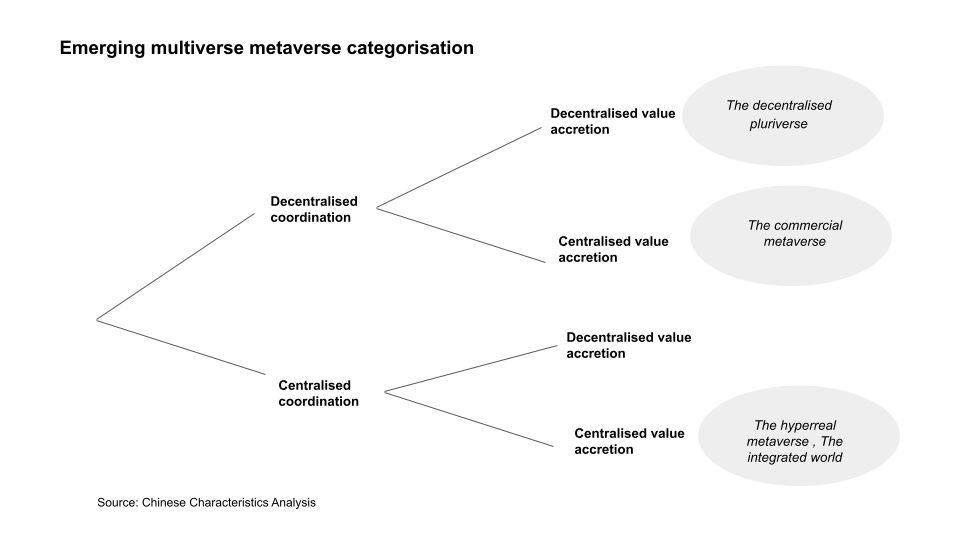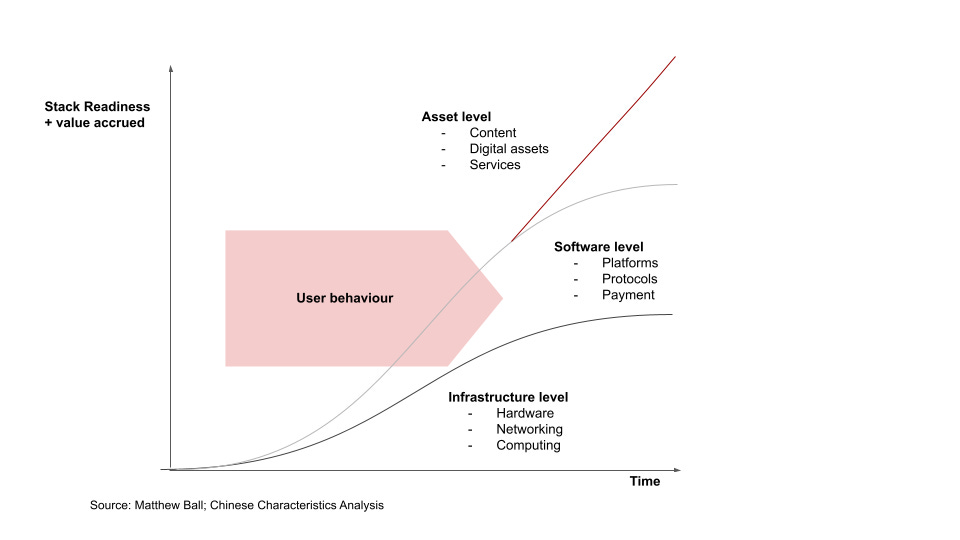…In that Empire, the Art of Cartography attained such Perfection that the map of a single Province occupied the entirety of a City, and the map of the Empire, the entirety of a Province. In time, those Unconscionable Maps no longer satisfied, and the Cartographer Guilds struck a Map of the Empire whose size was that of the Empire, and which coincided point for point with it. The following Generations, who were not so fond of the Study of Cartography as their Forebears had been, saw that that vast Map was Useless, and not without some Pitilessness was it, that they delivered it up to the Inclemencies of Sun and Winters. In the Deserts of the West, still today, there are Tattered Ruins of that Map, inhabited by Animals and Beggars; in all the Land there is no other Relic of the Disciplines of Geography.
—Suarez Miranda,Viajes devarones prudentes, Libro IV,Cap. XLV, Lerida, 1658
On Exactitude in Science by Jorge Luis Borges, Collected Fictions, translated by Andrew Hurley.
It is a universal fact that when our mothers ask about a nascent technology buzzword, something very big, and, often, very wrong is happening. When my mother asked 'What is the metaverse?' a sense of pervading dread ran through me. As it has been running for most of 2021. During every tech-adjacent convo, mega-cap rebranding and product launches and blue flame Substack think piece; the question arises sooner or later. "What is the metaverse?" "Is this the future?" and the unspoken deeper question — what future are you pledging allegiance to?
This essay will take a meta-analytical framing (hohoho) and explore the frontier of the Chinese metaverse through the following sections:
Metaverse in a nutshell
Why the metaverse as a concept is taking off
Why we should entertain the concept of metaverse
China's metaverse starting conditions
The different types of emerging metaverses
Part II of the Multiverse of metaverse will go into what the top players are doing in the space.
TL:DR - Not much is happening apart from excitement right now, which has its own inherent value in driving coordination and a tipping point. I see four states of the metaverse emerging; in a combination of decentralised and centralised coordination and value capture.
Also, I’m still an n00b in the matter of web3, do let me know what you think and whether you agree with my assessment. It is still very much a WIP.
What is the metaverse?
The Metaverse is a massively scaled and interoperable network of real-time rendered 3D virtual worlds which can be experienced synchronously and persistently by an effectively unlimited number of users with an individual sense of presence, and with continuity of data, such as identity, history, entitlements, objects, communications, and payments. - Matthew Ball
The above is the convergent definition of the 'metaverse' as it is branded around today, along with inevitable references to the 1992 novel Snowcrash from which the term originated. It is a specific definition, but contemplating the creation of the virtual world has been a post-modern and post-structuralist theme with a long tradition from Borges' short stories, Neil Postman's Amusing Ourselves To Death and Baudrillard’s Simulation and Simulacra, the latter of which greatly influenced The Matrix trilogy. The metaverse, as it is popularised in 2021 is but one vision in a cascade of the multiverses of future metaverses. The precise dimension of how each will arise is still yet to play out.
I've summarised Matthew Ball's epic 33,000-word multi-part essay into the following key categories that enable the metaverse creation. For further reading, I suggest Ball's intro section or Packy's piece on the value chain of the metaverse.
As Ball points out, the stacks’ directions of causality are not linear, as often one layer will drive innovation in the other layer and the effects are amplified over time. Gamer’s higher requirements drove GPU’s development. Thus, the stack's interaction should be considered multi-directional, with user behaviour demand and technological possibilities creating dynamic push and pull factors.
The phrase has reached unprecedented usage in recent months due to a combination of factors:
Prototypes of metaverse emerging (as our physical world crumbles) - After a year of living in a COVID-induced Zoompocalyse where adults and children alike immersed themselves in the virtual world living full time in the online doesn't seem like a distant future as much as it does a reconfigured present. With the success of Roblox, Fortnite and Zoom, the metaverse has become a credible product strategy. And it could have significant implications. One can argue that as states deteriorate, citizens can choose to voice or to exit. Such is the case in the time of Covid with inadequate governance structures, people are choosing increasingly to the virtual for an exit.
Narratives as coordinating mechanism - What's remarkable about humans In Sapiens is our ability to coordinate through collective narratives. We tell ourselves stories in order to create new worlds together. Like data as a factor of production, the idea needs to be created before the building can begin. If not the metaverse, we would have another guiding narrative that rallies the imagination and become a call to action for creation.
Lack of other short term "fengkous" on the horizon - Metaverse is an abstract concept to get one's head around and then some. But what else is there to get excited about in tech circles? Mobile internet ad tech giants that grew up are getting saturated. Younger users no longer find Meta (the company formerly known as Facebook) and Tencent cool. As I've mentioned many times before here in CGB and Livestreaming E-commerce, fengkous, which used to be a six-month event in China tech, now take place further and further apart. The metaverse seems to offer the promise of not just one tech fengkou, but an ecosystem of new ones — blockchain, SaaS, cloud adoption, IP from any source, games and more all fit into the new framework. It is the magic dust the tech industry hasn't seen since AI came along.
Evolution of underlying infrastructure - From Ball's analysis, it's clear that several layers need to move concurrently and in similar directions, and their respective formations will drive the world that emerges. Cryptocurrencies and blockchain have created proto-ecosystems that offer glimpses of the financial system and the good exchanges that can arise independently of nations or multi-national corporations. The metaverse and its goal of interoperable assets seem like a step closer.





